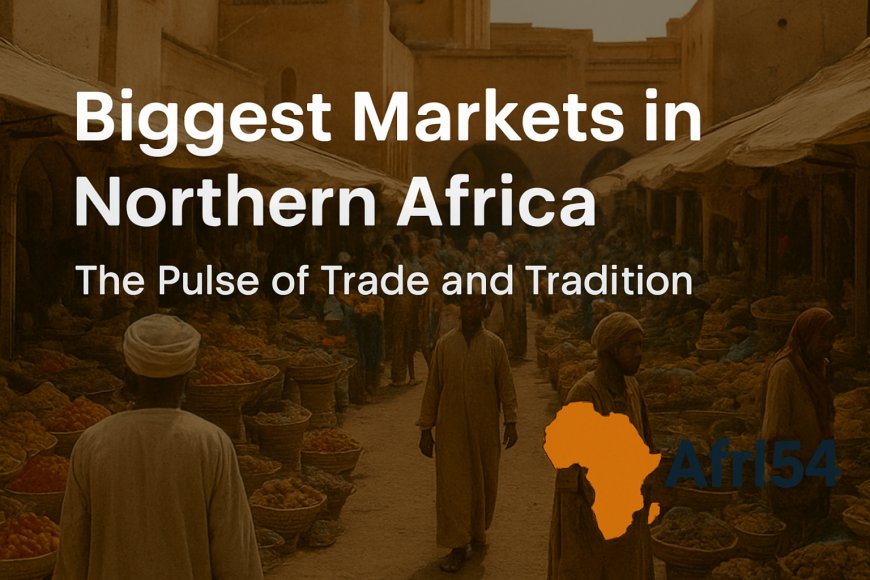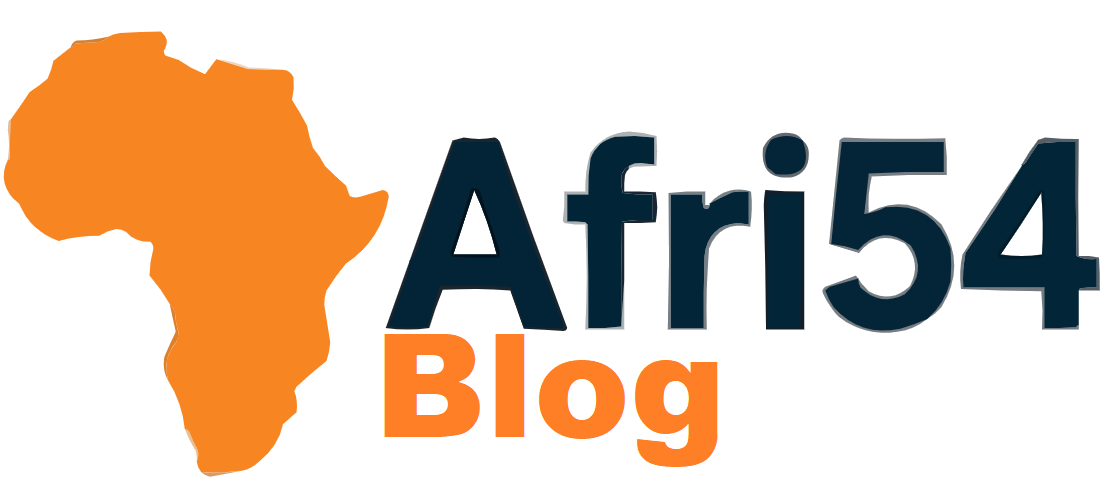10 Biggest Markets in Northern Africa
Discover the 10 biggest markets in Northern Africa — from Cairo’s Khan El-Khalili to Marrakech, Tunis, and Agadir. Explore their history, scale, and cultural significance.

Reading Time: ~9 minutes
Northern Africa is a region steeped in history and culture, where trade has flourished for centuries across deserts, cities, and ports. From Morocco’s legendary souks to Egypt’s ancient bazaars, these markets are not only centers of commerce but also living museums of tradition. Here’s a look at the 10 biggest markets in Northern Africa, ranked from largest to smallest.
1. Khan El-Khalili (Cairo, Egypt)
One of the oldest and largest bazaars in Africa, Khan El-Khalili dates back to the 14th century. Located in Cairo’s historic center, it offers gold, silver, spices, perfumes, fabrics, antiques, and souvenirs. It remains Egypt’s most iconic market and a symbol of Cairo’s vibrant cultural life.
2. Souk Al-Madina (Aleppo, Libya border traders)
Stretching over kilometers of narrow lanes, Souk Al-Madina is famous for its labyrinth of stalls. While historically centered in Aleppo, its North African branches (especially in Libya’s trade hubs) focus on fabrics, spices, olive oil, and traditional crafts. It is a crossroads of Middle Eastern and North African trade.
3. Souk El Attarine (Tunis, Tunisia)
Dating back to the 13th century, this market is located in the heart of the Tunis Medina, a UNESCO World Heritage Site. It is renowned for perfumes, incense, spices, and gold jewelry. Its historic charm makes it one of Tunisia’s most visited markets.
4. Jemaa el-Fnaa & Souks of Marrakech (Marrakech, Morocco)
The Marrakech souks are world-famous for their scale and diversity. From carpets, leather, and ceramics to lamps, spices, and argan oil, these markets are buzzing day and night. Jemaa el-Fnaa square adds to the spectacle with performers, food stalls, and storytellers.
5. Bab El Louk Market (Cairo, Egypt)
Located in downtown Cairo, Bab El Louk is a large modernized market that serves as a hub for fresh produce, meat, fish, spices, and imported goods. It caters to both wholesale and retail buyers, making it a daily lifeline for Cairo residents.
6. Souk El Had (Agadir, Morocco)
Covering over 13 hectares, Souk El Had is one of Morocco’s biggest markets. It hosts more than 3,000 stalls selling everything from food and clothing to handicrafts and furniture. Its massive scale makes it one of the largest structured markets in the region.
7. Souk El Arabi (Omdurman, Sudan)
Sudan’s largest market, Souk El Arabi, is located in the city of Omdurman. It is famous for textiles, spices, perfumes, and traditional Sudanese handicrafts. It is also a gathering point for pastoral and agricultural trade across the Nile.
8. Souk El Kebir (Tripoli, Libya)
One of Libya’s most prominent markets, Souk El Kebir is known for its diverse goods, from fabrics and jewelry to spices and leather. It also serves as a cultural hub where Libyan artisans display traditional crafts.
9. Souk Djemaa (Fez, Morocco)
The Fez Medina hosts one of the largest car-free urban areas in the world, and its souks are legendary. Carpets, brassware, pottery, and leather are the main products. The market’s architecture and historic gates add to its grandeur.
10. Souk El Ghrabliyya (Cairo, Egypt)
Known for its copper and brass craftsmanship, this Cairo market specializes in lamps, trays, and decorative metalwork. While smaller in size compared to Khan El-Khalili, it remains a vital heritage market for Egypt’s artisanal trade.
Why Northern Africa’s Markets Matter
From Cairo’s sprawling Khan El-Khalili to Marrakech’s colorful souks, these markets are more than shopping centers — they are pillars of culture, history, and economic life. They connect artisans, traders, and farmers with local and international buyers, keeping centuries-old traditions alive.
Final Thoughts
Northern Africa’s markets blend the ancient with the modern, offering a unique experience where history and commerce meet. Whether you’re exploring spices in Tunisia, carpets in Morocco, or jewelry in Egypt, each market tells a story of resilience and creativity.
Have you listed your business on Afri54?
Afri54 exists to solve a fundamental challenge faced by millions of African businesses: lack of visibility. Whether you’re an automobile part seller in Lagos, a local attire manufacturer in Kigali, a coffee exporter in Addis Ababa, or a mobile phone supplier in Accra, you deserve to be seen. Join Now






















